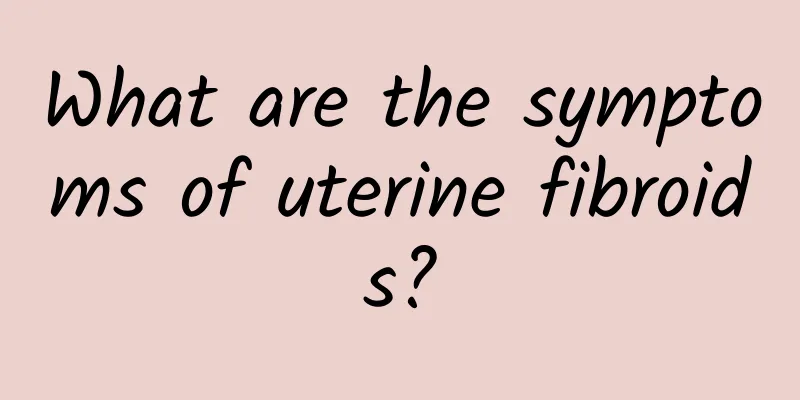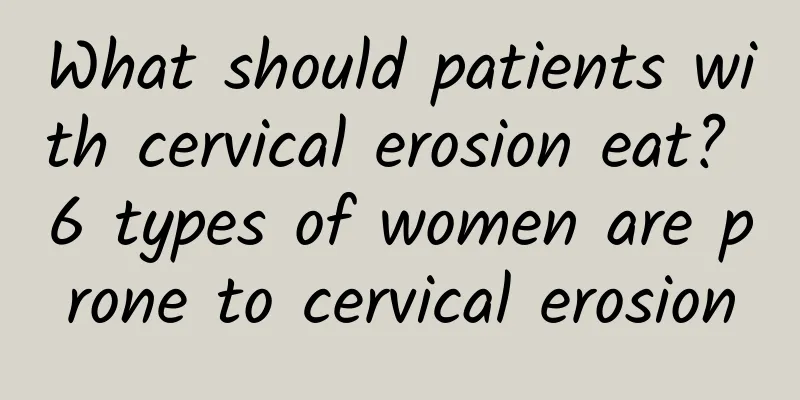What are the symptoms of uterine fibroids?

|
Symptoms of uterine fibroids may include menstrual irregularities, abdominal discomfort, and difficulty urinating. They may also affect fertility. If you experience these symptoms, it is recommended that you see a doctor as soon as possible to identify the cause and develop a treatment plan. 1. Abnormal menstruation. Uterine fibroids often cause excessive menstrual flow, prolonged or frequent menstruation, and even intermenstrual bleeding. This is because the fibroids affect the normal shedding of the endometrium or compress blood vessels. If abnormal menstruation persists and there are symptoms of anemia such as fatigue and dizziness, you need to go to the gynecology department for a checkup in time to identify the size and location of the fibroids. 2 Abdominal discomfort or pain. The growth of fibroids may cause the uterus to enlarge, which in turn may cause dull pain or a feeling of heaviness in the lower abdomen, or even acute severe pain, which is more common when the fibroids are twisted or necrotic. Especially for larger fibroids, you may feel a mass in the lower abdomen. At this time, you should seek medical attention as soon as possible to avoid delaying the condition. 3. Difficulty urinating or constipation. Uterine fibroids are located close to the bladder or rectum, which can cause symptoms such as increased urination frequency, urgency, urinary retention or constipation. This is due to the compression of nearby organs by the tumor. For people who continue to urinate or have abnormal bowel movements, especially women with abdominal distension, the cause should be determined as soon as possible through B-ultrasound and other examinations. 4. Fertility problems. If the fibroids are located in the uterine cavity or uterine wall, they may interfere with embryo implantation or fetal development, leading to infertility, miscarriage or premature birth. For women of childbearing age, gynecological screening is recommended before pregnancy to ensure the health of the uterus. If you already have fertility problems, you can consult a doctor to assess whether surgical treatment such as myomectomy is needed. As mentioned above, the symptoms of uterine fibroids vary from mild to severe, and the specific manifestations vary from person to person. Women need to be vigilant and have regular gynecological examinations to help early detection and scientific treatment, while also maintaining healthy lifestyle habits, such as maintaining weight and eating a healthy diet. Timely treatment after diagnosis can not only improve symptoms, but also prevent complications and improve quality of life. |
<<: Abnormal leucorrhea, blood, and no menstruation
>>: Will I get cancer after having an abortion for a hydatidiform mole?
Recommend
This fruit ranks first in pesticide residues! Nutritionist Cheng Hanyu: 1 way to reduce pesticide residues
Newly released! Taiwan’s fruit pesticide residue ...
What tests should be done for low menstrual flow
If your menstrual flow continues to be light or u...
Experts specifically introduce common symptoms of cervical hypertrophy
For female friends, if they want to treat cervica...
How is cervical warts diagnosed?
As we all know, cervical warts are a contagious s...
Fat hands that refuse love! 7 Foods to Get Back Your Slim Waist
If a woman has extra fat around her waist, it is ...
Which department should I visit for pelvic peritonitis?
What are the main symptoms of pelvic peritonitis?...
How to treat abnormal vaginal discharge? Choose between Western medicine and traditional Chinese medicine
If you have abnormal leucorrhea, you can choose b...
What are the types of dysmenorrhea?
Nowadays, many women are plagued by dysmenorrhea,...
How long after a miscarriage is it normal to have a period?
It is considered normal for menstruation to resum...
3 diseases that are likely to cause ectopic pregnancy
Ectopic pregnancy, also known as ectopic pregnanc...
What is the cause of vulvar itching and excessive leucorrhea?
What causes vulvar itching and excessive vaginal ...
I have an ectopic pregnancy. What is going on?
Many female friends are very surprised when they ...
What are the symptoms of miscarriage?
As a female compatriot, I believe that everyone i...
What are the dangers of hyperprolactinemia in the early stage?
What are the dangers of hyperprolactinemia? The s...
Women should not take it lightly: Symptoms of early pregnancy
Early pregnancy is one of the important reasons f...









